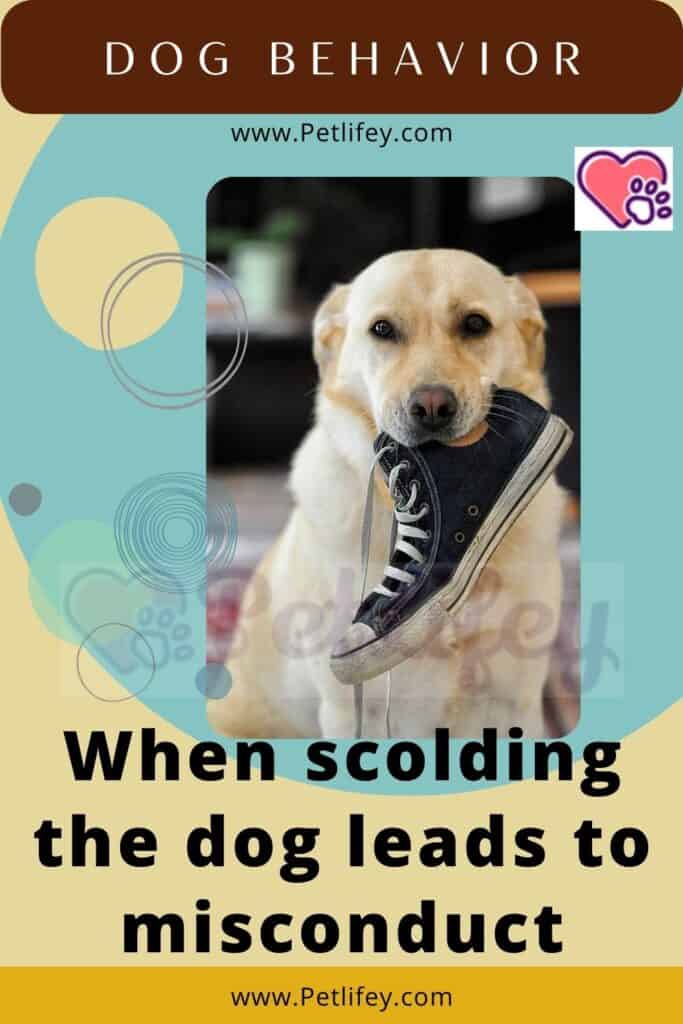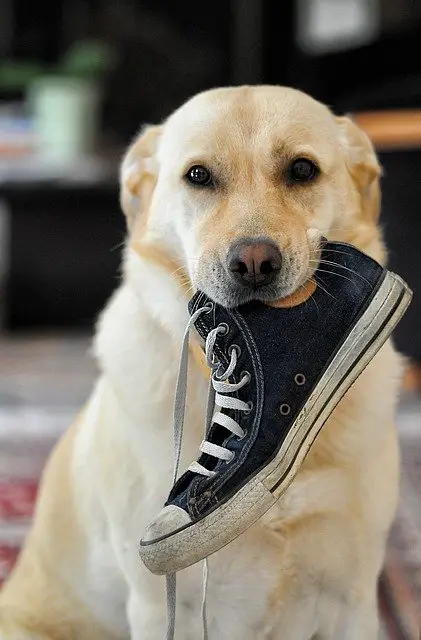
There is often talk of reproaches and dog training, but rarely does it refer to the way in which they must be imparted. The boundary that separates the correct reproach from other actions that can harm your four-legged friend is really very blurred, so we want to tell you something more about those reproaches that often, instead of benefiting your dog’s learning, push them to adopt misconduct.
It is important that the dog is reprimanded when it does not behave well, just like you would do with children. If not, your furry friend may think their behavior is the right one and continue to do the same. Despite this, it is also right to remember that reproach and punishment must be proportionate and never excessive.
Establish a strategy
Physical punishment generally responds to the inability to act according to an adequate strategy or to the very lack of a strategy capable of eliminating bad habits. It is therefore essential that you adopt one that allows your dog to understand when he is wrong or misbehaving.
It is important that your four-legged friend is able to associate the reprimand with the action it has committed or is committing. It must therefore be a repetitive reproach and, above all, it must come when the dog makes the mistake or acts badly.
These are some of the strategies you can use:
- Use your voice to say “No!” dry. Dogs do not understand words but they pick up their different tones (because they are similar to their language made of barking) and are also able to understand moods.
- Use some noise-making object, such as a rolled-up newspaper, to hit some surface and surprise your dog. Never use it against the animal.
- Use your body language: surround them when it does something wrong, walking towards him to block their passage.
- Get them to lie on their stomach – this is how dogs show submission to the alpha male.
- Use positive reinforcement whenever your dog is doing well.
Actions that promote misconduct

Physical or excessive punishment tends to damage your pet’s self-esteem and, far from being useful, will only make your dog no longer trust you. For example, one of the most common forms of misconduct motivated by excessive reprimand is that involving the place where the dog has to go to their business.
Many owners lose their nerve when their dog goes to the toilet where it doesn’t have to, especially if it is an adult animal. However, the use of shouts or even violence creates in the animal the fear of doing its own needs in front of the master, thus worsening the situation, since the poor animal will hide in order to evacuate.
On these occasions, it is best to mark the space in which the dog can do their business, for example by using newspaper soaked in their pee, so that it recognizes their own smell, and leaving it in the place you have designated for this function. Whenever the dog goes to their business where it shouldn’t, pick them up and take them to the area you have equipped for them with the newspaper. It will be quite a long process, but it will give you better long-term results.
It is equally important that you seek the cause of certain misconduct. Many destructive behaviors, for example, or the constant barking, which we sometimes see in our animals, can be caused by an accumulation of stress or boredom.
Instead of scolding them, try taking them out for a walk or maybe playing with them for a while. Try to devote some time to them and let them do some activities, in this way it will vent some of their energy: it is obvious that a tired dog is less likely to cause trouble and will be calmer than one who has a lot of accumulated energy.
The same thing happens with aggression: this is often the result of bad education, prolonged captivity or isolation and mistreatment. Get your dog to play with other animals, take them out often and let them make friends with other people. By doing this you will get them used to being a sociable and balanced dog.
Generally speaking, the basis of canine education is the reinforcement of positive conduct, the reward and the reward, be it cuddling, food or games. There are many methods to educate and train a dog among which you can choose the one that best suits you, so do not hesitate to ask the opinion of an expert on the subject or your veterinarian who will know how to guide you. The most important things in this learning process are your patience, your rigor and your resolve. But don’t forget that affection also plays a fundamental role: remember that everything must be done in moderation and even reproach, when necessary, must be justified.






